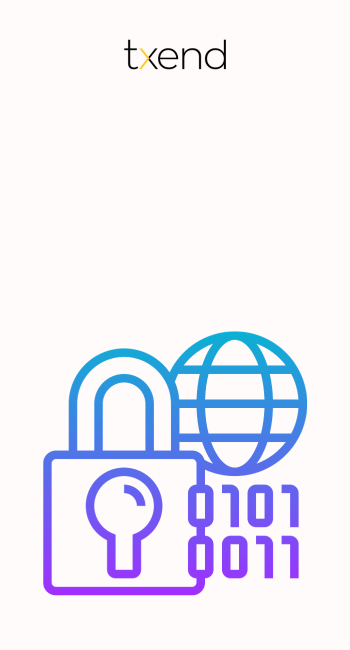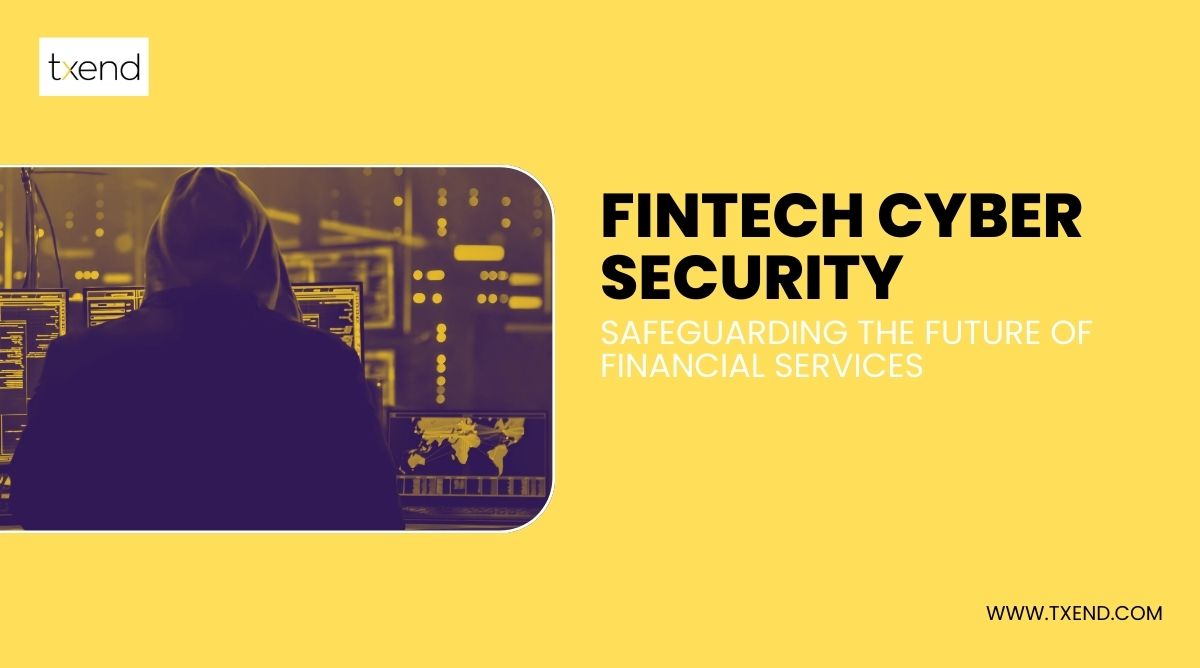Fintech Cybersecurity
In the rapidly evolving landscape of financial services, technology-driven innovations have revolutionized the way we manage and access our money.
Fintech (financial technology) has transformed the market, making financial services more available, effective, and practical than ever before.
Examples include mobile payment apps, robo-advisors, and blockchain-based solutions.
However, as financial transactions and data have migrated into the digital realm, a new frontier of challenges has emerged—one that threatens the very core of fintech’s promise.
The topic of our discussion today is “fintech cybersecurity.” It’s not just a buzzword; it’s a critical imperative that underpins the trust and reliability of the financial services we rely on daily.
We will examine how cybersecurity in fintech plays a crucial role in ensuring the future of financial services as we go deeply into this topic in this post.
Our journey will take us through the intricate web of fintech and cybersecurity, shedding light on the symbiotic relationship between these two domains.
We’ll go through the ever-present risks that fintech innovations face, from data breaches to cyberattacks, and discover how these challenges threaten the integrity of financial services.
Moreover, we’ll explore fintech app security solutions and strategies that institutions and startups alike can implement to fortify their defenses.
We’ll discuss the unique demands of cybersecurity in financial services, considering the sensitive nature of financial data and transactions.
As we navigate through these topics, we’ll emphasize the importance of proactive cybersecurity measures and their role in sustaining the trust and credibility that underpin FinTech’s success.
Cybersecurity isn’t merely a reactive measure; it’s a proactive investment in the longevity of financial innovation.
Join us on this journey as we uncover the complexities, innovations, and strategies at the intersection of fintech and cybersecurity.
Together, we’ll gain insights into how cybersecurity is, indeed, safeguarding the future of financial services in an increasingly digital world.
Key Takeaways
- Cybersecurity is critical for protecting financial data and customer trust in US fintech firms.
- Partnering with a US fintech security company offers expertise, compliance, and specialized solutions to enhance cybersecurity defenses.
- The evolution of cybersecurity fintech in the US in 2023 involves adapting to emerging threats, leveraging technology, and navigating regulatory challenges.
- Navigating cybersecurity in fintech involves strategic planning to reap benefits while mitigating risks and addressing evolving challenges in the industry.

The Vital Role of Cybersecurity for US Fintech Companies
In the dynamic landscape of financial technology, or fintech, innovation reigns supreme. The United States, as a hotbed for fintech activity, has seen a proliferation of companies disrupting traditional financial services.
Yet, as these innovative fintech solutions continue to reshape the industry, an equally critical factor demands our attention to cybersecurity. In this post, we’ll look at why cybersecurity is so crucial for fintech businesses doing business in the US market.
Safeguarding Sensitive Data Types of Data Stored:
Fintech companies handle a vast array of sensitive data, including personal and financial information.
This includes customer names, social security numbers, banking details, and more. Cybersecurity is essential to protect this treasure trove of data from falling into the wrong hands.
Fintech Data Protection:
Fintech platforms serve as custodians of their users’ financial data. Effective cybersecurity measures ensure that this data remains secure and confidential, bolstering trust among users.
Upholding Reputation:
Reputation is everything in fintech. A security breach can tarnish a company’s image irreparably. Cybersecurity is not just about protecting data; it’s about preserving trust and credibility among customers, partners, and investors.
Mitigating the Cost of Breaches:
The cost of a cybersecurity breach can be staggering, encompassing not only financial losses but also legal penalties and regulatory fines.
Investing in robust cybersecurity measures can save fintech companies from substantial financial setbacks.
Regulatory Compliance:
The fintech industry is subject to a complex web of regulations and compliance standards, including those related to data protection (e.g., GDPR, CCPA).
Maintaining compliance is not optional, and cybersecurity is a critical component of meeting these requirements.
In the United States’ bustling fintech landscape, cybersecurity is not a choice; it’s an absolute necessity.
Fintech companies must understand that protecting sensitive data, ensuring data protection, upholding their reputation, mitigating the cost of breaches, and complying with regulatory standards are all integral to their long-term success.
By prioritizing cybersecurity, these companies not only safeguard themselves but also contribute to the continued growth and trust in the fintech ecosystem.
The Advantages of Partnering with a Fintech Security Company in the US Market:
In today’s digital age, the financial services landscape is rapidly transforming, and fintech innovations are at the forefront of this evolution.
As financial technology continues to redefine the way we manage and access our finances, it brings with it unprecedented convenience and efficiency.
However, the digital transformation of the financial sector has also opened the door to new and increasingly sophisticated cyber threats, making cybersecurity a paramount concern.
The primary focus of our discussion is “fintech cybersecurity.” This article explores the vital role it plays in securing the future of financial services in the United States while specifically examining the benefits that arise from partnering with a fintech security company in this dynamic market.
Benefits of Using a Fintech Security Company in the US:
Expertise in Fintech Security:
Fintech security companies specialize in safeguarding financial technology systems. Their expertise ensures that your fintech platform remains secure against evolving threats.
Compliance Assurance:
Fintech security firms are well-versed in financial industry regulations. They help fintech companies adhere to compliance requirements, reducing regulatory risks.
Tailored Solutions:
These companies offer customized security solutions tailored to the unique needs of fintech firms. This approach ensures that security measures align with specific risks and challenges.
Advanced Threat Detection:
Fintech security experts employ state-of-the-art tools and technologies for threat detection. They can identify and mitigate potential security breaches swiftly.
Pentesting for Fintech Companies:
Penetration testing (pentesting) is a crucial benefit. It involves ethical hacking to assess vulnerabilities in fintech systems. Identifying weaknesses proactively allows for prompt remediation, preventing potential data breaches.
Data Protection:
Fintech security companies implement robust data protection measures, safeguarding sensitive customer information and financial data from unauthorized access.

24/7 Monitoring:
Continuous monitoring of fintech systems is essential. Security firms provide round-the-clock surveillance, ensuring immediate action in case of security incidents.
Incident Response:
If there is a security lapse, fintech security companies have well-defined incident response plans. They help contain and mitigate the impact of breaches swiftly.
Risk Management:
These firms assess and manage security risks comprehensively, ensuring that fintech companies are well-prepared to address potential threats effectively.
Competitive Advantage:
Demonstrating a commitment to robust cybersecurity can enhance trust among customers and investors, giving fintech companies a competitive edge in the market.
Cost-Effective:
Outsourcing security to specialists can be cost-effective compared to building an in-house security team. It allows fintech companies to allocate resources more efficiently.
Focus on Core Business:
By entrusting cybersecurity to experts, fintech firms can focus on their core business activities, knowing that their security needs are in capable hands.
In conclusion, partnering with a fintech security company in the USA, which includes services like penetration testing, offers numerous advantages.
It ensures comprehensive protection against cyber threats, compliance with regulations, and the ability to respond swiftly to incidents, ultimately bolstering the reputation and reliability of fintech platforms.
Cybersecurity in the Fintech Challenges Navigating Risks in 2023
Navigating Cloud Computing Challenges in cybersecurity in the fintech:
In the fast-paced world of fintech, cloud computing is a game-changer, but it also presents unique challenges for ensuring robust cybersecurity.
Guarding Against Identity Theft and Authentication Risks:
As fintech services expand, so do the risks of identity theft and authentication breaches. Discover strategies to protect customer identities.
Securing Online Digital Platforms Fintech’s Cybersecurity Frontier:
Online digital platforms are the lifeblood of fintech. Learn how to safeguard these critical components against cyber threats.
Countering Malware Attacks Cybersecurity in the fintech Imperative:
Malware attacks can cripple fintech operations. Explore methods to detect and prevent malware threats.
Third-Party Access Risks in Cybersecurity fintech:
Collaboration with third parties can expose vulnerabilities. Explore strategies for mitigating risks associated with third-party access.
Untangling System Complexity and Compatibility Issues:
In fintech, system complexity and compatibility can pose cybersecurity challenges. Discover ways to simplify and secure your tech stack.
Money Laundering Risks in Fintech Combating Financial Crimes:
Money laundering is a growing concern. Learn how fintechs can play a vital role in fighting financial crimes.
Safeguarding Against Data Breaches in Fintech Operations:
Data breaches can have devastating consequences. Explore best practices to protect sensitive financial data.
Defending Against DDoS Attacks in Fintech:
Distributed Denial of Service (DDoS) attacks threaten fintech availability. Learn how to build a robust defense against these assaults.

Strengthening Integration Loopholes in cyber security fintech:
Integration points are potential weak links. Discover how to reinforce integration security.
AI Fuzzing A Cutting-Edge Approach to Cybersecurity fintech:
Explore how AI fuzzing can uncover vulnerabilities in fintech systems and enhance security.
Guarding Against Phishing Attacks in Fintech Operations:
Phishing attacks target both employees and customers. Discover strategies to recognize and thwart phishing attempts.
Mitigating Insider Threats in Fintech Protecting from Within:
Insider threats can be especially damaging. Learn how to recognize and reduce these hazards inside your company.
This revamped structure allows for a more focused exploration of the specific challenges fintech companies face in the US market related to cybersecurity while also aligning with the title of your article.
Evolution of Cybersecurity fintech in the United States Solutions, Advantages, Risks & Challenges
Increased Reliance on Technology:
The fintech industry in the US has experienced rapid growth, with many financial institutions and startups relying heavily on technology to provide innovative financial services. This increased reliance on technology has made the industry more vulnerable to cyber threats.
Evolving Cyber Threat Landscape:
The cybersecurity landscape is constantly evolving, with cybercriminals becoming more sophisticated. Attacks such as ransomware, phishing, and data breaches have become more common and sophisticated, posing significant risks to financial institutions.
Regulatory Changes:
The Securities and Exchange Commission and the Federal Trade Commission (FTC), two US regulatory agencies, have issued or modified cybersecurity regulations.
These rules are designed to make sure that financial institutions take strong cybersecurity precautions to safeguard consumer information and financial assets.
Fintech App Security Solutions:
Fintech companies are increasingly investing in security solutions to protect their applications. This includes the use of encryption, multiple-factor authentication, and ongoing monitoring to quickly identify and address risks.
Collaboration and Information Sharing:
In response to the growing cyber threats, financial institutions, fintech companies, and government agencies have started to collaborate more closely. Information sharing about cyber threats and vulnerabilities has become essential for early threat detection and mitigation.
Fintech Risk Assessment:
Financial institutions are placing a stronger emphasis on risk assessment, especially in the fintech sector. They are conducting comprehensive risk assessments to identify vulnerabilities and prioritize cybersecurity efforts.
Employee Training and Awareness:
Recognizing that employees can be a weak link in cybersecurity, financial organizations are investing in training and raising awareness among their staff. This helps to lower the dangers brought on by insider threats and human mistakes.

Cloud Adoption:
Many fintech companies have embraced cloud computing for its scalability and flexibility. However, securing data in the cloud has become a critical concern, leading to advancements in cloud security solutions.
Emerging Technologies:
The adoption of emerging technologies like blockchain and artificial intelligence (AI) in the financial sector has introduced new cybersecurity challenges and opportunities. Although these technologies have the potential to improve security, they also necessitate certain security precautions.
Customer Expectations:
With increasing awareness of cybersecurity threats, customers in the US are expecting their financial institutions and fintech providers to prioritize security. This has put pressure on organizations to invest in robust cybersecurity measures to maintain customer trust.
In summary, cybersecurity in the banking and finance sector in the US has evolved significantly due to increased reliance on technology, a changing threat landscape, regulatory changes, and the adoption of security solutions.
Fintech companies, in particular, are focusing on enhancing their cybersecurity measures to address the unique challenges they face in providing innovative financial services while protecting sensitive customer data and financial assets.
Navigating Cybersecurity in the Fintech Strategies, Benefits, Risks & Challenges:
Create Robust Security Policies:
Establish comprehensive cybersecurity policies and procedures tailored to fintech operations, defining roles, responsibilities, and security protocols.
Example: create password policies that enforce strong, regularly updated passwords across the organization.
Leverage AI, ML, and Analytics:
Improve threat detection by using machine learning (ML), artificial intelligence (AI), and sophisticated analytics to recognize and respond to cybersecurity threats in real time.
Example: employ ML algorithms to detect unusual patterns in user behavior that may indicate a breach.
Implement Secure by Design Policies:
Integrate security measures into the development and deployment phases of fintech solutions to minimize vulnerabilities from the outset.
Example: Conduct security assessments during the application development process to identify and address potential vulnerabilities.
Continuous Threat Monitoring:
Implement round-the-clock network traffic and system monitoring to identify and address risks as they arise.
Example: Use intrusion detection systems to monitor for suspicious activity and automatically trigger alerts.
Proactive Vulnerability Management:
Regularly scan and assess systems and applications for vulnerabilities, prioritize them, and take proactive measures to address them.
Example: Patching known vulnerabilities promptly to prevent exploitation.

Enforce Zero Trust:
Adopt a “never trust, always verify” approach to cybersecurity, requiring authentication and verification for every user and device, even if they are inside the network perimeter.
Example: Implement multi-factor authentication (MFA) for all users.
Manage Third-Party Risks Effectively:
Assess and manage the cybersecurity risks associated with third-party vendors and partners who have access to your systems or data.
Example: Conduct regular security assessments of third-party fintech service providers.
Don’t Ignore Robust API Security:
To avoid data breaches and unauthorized access, make sure the APIs (Application Programming Interfaces) used by financial applications are secure.
Example: Encrypt API communications and implement OAuth for secure access control.
Maintain Ransomware Resistant Backups:
Regularly back up critical data and systems, and ensure that these backups are resilient to ransomware attacks.
Example: Store backups in isolated environments with restricted access to prevent ransomware infection.
Create a Culture of Cybersecurity:
Encourage a culture of cybersecurity awareness within your company by stressing the value of security to workers.
Example: Conduct regular cybersecurity training and awareness programs for all staff members.
These strategies and practices collectively contribute to a robust cybersecurity fintech framework in the US, helping protect sensitive financial data and operations in an evolving threat landscape.
Overview of Cybersecurity Challenges Faced by the Fintech Industry in the US:
The fintech industry in the United States, while fostering innovation and reshaping the financial landscape, grapples with several critical cybersecurity challenges. One of the foremost concerns is the relentless evolution of cyber threats.
Cybercriminals are becoming increasingly sophisticated, launching attacks such as ransomware, data breaches, and phishing campaigns, which pose a significant risk to fintech companies.
Additionally, the rapid pace of technological advancements within the fintech sector can sometimes outpace cybersecurity measures.
As fintech organizations adopt emerging technologies like blockchain and artificial intelligence, they must simultaneously address the unique security requirements associated with these innovations.
Furthermore, regulatory compliance remains a critical issue. Regulatory bodies like the SEC and FTC are continually updating their cybersecurity requirements to safeguard customer data and maintain financial stability.
Fintech companies must navigate this complex regulatory landscape to ensure they are in compliance while maintaining robust security protocols. Another pressing challenge is the interconnected nature of the fintech ecosystem.
Fintech firms often collaborate with third-party vendors and partners, expanding the attack surface and creating vulnerabilities. Effective management of third-party risks is crucial in mitigating these potential threats.
Moreover, the user-centric nature of fintech services places a premium on customer trust and data protection. Maintaining secure and user-friendly applications is essential, as any data breach or service disruption can have far-reaching consequences.
In response to these challenges, fintech organizations are implementing a range of cybersecurity solutions and strategies.
They are adopting advanced technologies like AI and machine learning for threat detection and investing in secure-by-design principles during application development.
Continuous threat monitoring, proactive vulnerability management, and the enforcement of zero-trust principles are becoming standard practices to safeguard fintech operations.
In conclusion, as the fintech industry continues to evolve and innovate, addressing cybersecurity challenges is paramount. By staying vigilant, adopting cutting-edge security measures, and complying with regulations, fintech companies in the US can navigate these challenges and continue to provide secure and innovative financial services in 2023 and beyond.
How does Txend support Cybersecurity in fintech?
Txend, a leading player in the fintech industry, plays a pivotal role in bolstering fintech cybersecurity within the United States. In an era where financial technology is reshaping the industry landscape, Txend stands as a staunch guardian of digital financial assets.
One of the primary ways Txend supports cybersecurity in fintech is by offering cutting-edge fintech app security solutions. Through their robust and adaptable security software, Txend provides fintech firms with the tools they need to fortify their applications against ever-evolving threats.
This includes real-time threat monitoring, vulnerability assessments, and secure-by-design principles integrated into the development process.
Moreover, Txend recognizes the importance of compliance with cybersecurity regulations specific to financial services. They offer guidance and solutions to ensure that fintech companies adhere to these stringent standards, reducing the risk of regulatory penalties and bolstering customer trust.
Txend’s commitment to proactive risk management aligns with the unique challenges faced by fintech. They help fintech organizations identify and mitigate risks associated with emerging technologies, third-party partnerships, and the interconnected fintech ecosystem.
In summary, Txend empowers fintech firms in the US by providing tailored cybersecurity solutions that address the nuances of the industry. Their holistic approach encompasses technology, compliance, and risk management, safeguarding the fintech sector and enabling it to thrive in an era of digital finance.
Frequently Asked Questions
Shifting left in fintech involves early integration of security into the development process, enhancing resilience against cyber threats in the US.
Primary cybersecurity risks for US fintech: data breaches, ransomware, phishing, regulatory compliance, third-party vulnerabilities, and evolving cyber threats.
Fintech app security solutions in the US bolster safety through encryption, user authentication, real-time monitoring, and vulnerability mitigation, safeguarding financial applications.
Recent US fintech cyberattacks include SolarWinds breach, impacting data integrity, and the Equifax breach, compromising sensitive customer information.
Implement encryption, multi-factor authentication, regular audits, threat monitoring, secure coding, employee training, and comply with stringent regulations to secure fintech data and transactions.
Emerging trends: AI-driven security, blockchain adoption.
Challenges: Evolving threats, regulatory changes, securing IoT devices, and managing third-party risks.
Fintech companies foster a cybersecurity culture through education, regular training, clear policies, and promoting vigilance in security practices
Conclusion
In conclusion, the rapidly evolving landscape of fintech cybersecurity in the United States presents both opportunities and challenges for the financial technology industry.
As fintech continues to reshape the way we handle finances, the importance of safeguarding sensitive data and transactions cannot be overstated.
Fintech companies are faced with the dual mandate of innovating and securing their digital offerings. However, they are not alone in this journey.
Solutions like fintech app security solutions and advanced cybersecurity financial services are at their disposal, providing the means to navigate the intricate web of fintech risk and the ever-present threat of cyber security in fintech.
As we navigate 2023 and beyond, maintaining robust cybersecurity practices is paramount for fintech firms. The benefits of enhanced security, such as customer trust and regulatory compliance, far outweigh the risks and challenges.
By implementing proactive strategies, leveraging the power of technologies like AI and ML, and embracing a culture of cybersecurity, the fintech industry in the US can continue to thrive and contribute to the evolution of financial services.
In this era of fintech innovation, cybersecurity remains the bedrock upon which trust, stability, and progress are built. As the fintech cybersecurity guide for 2023 indicates, securing the future of finance is not just a choice; it’s an imperative.



